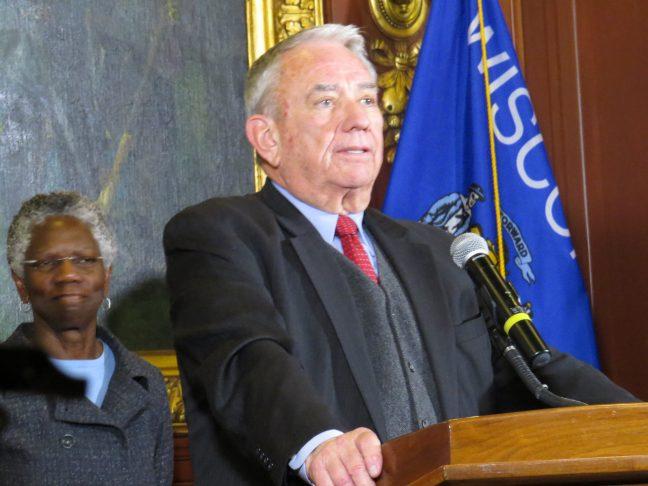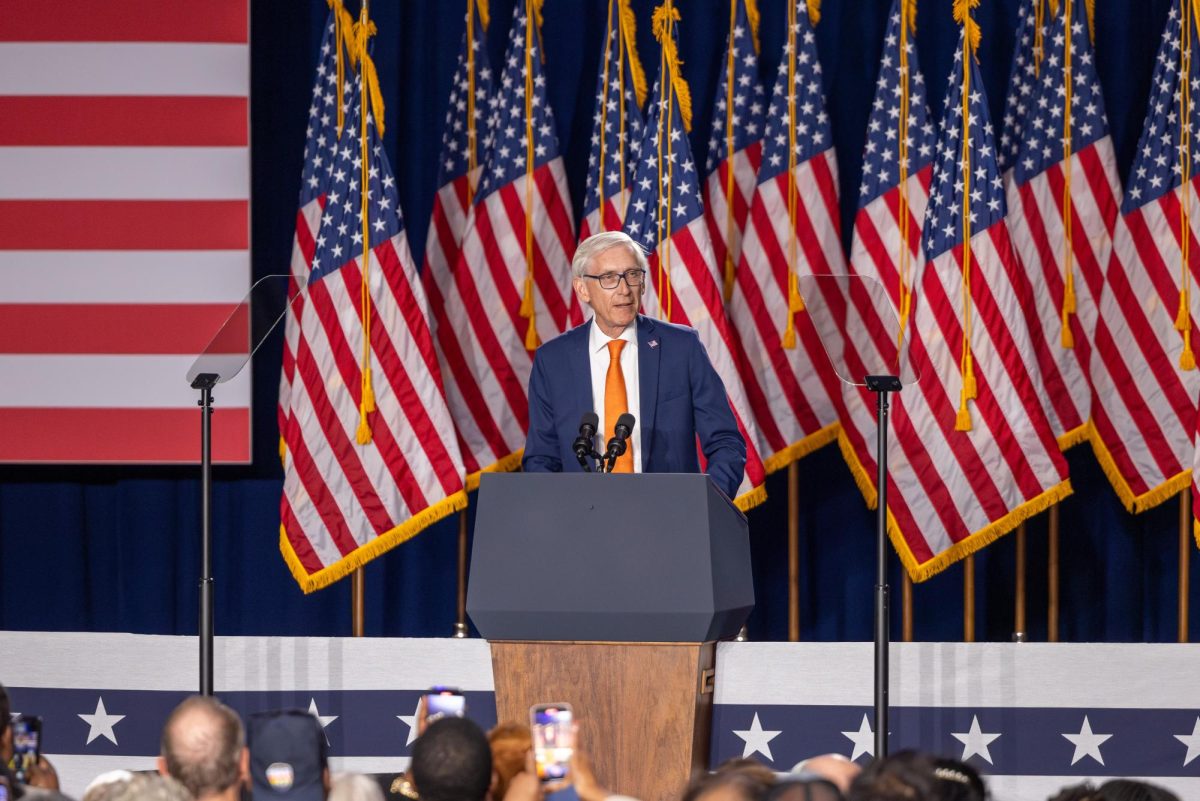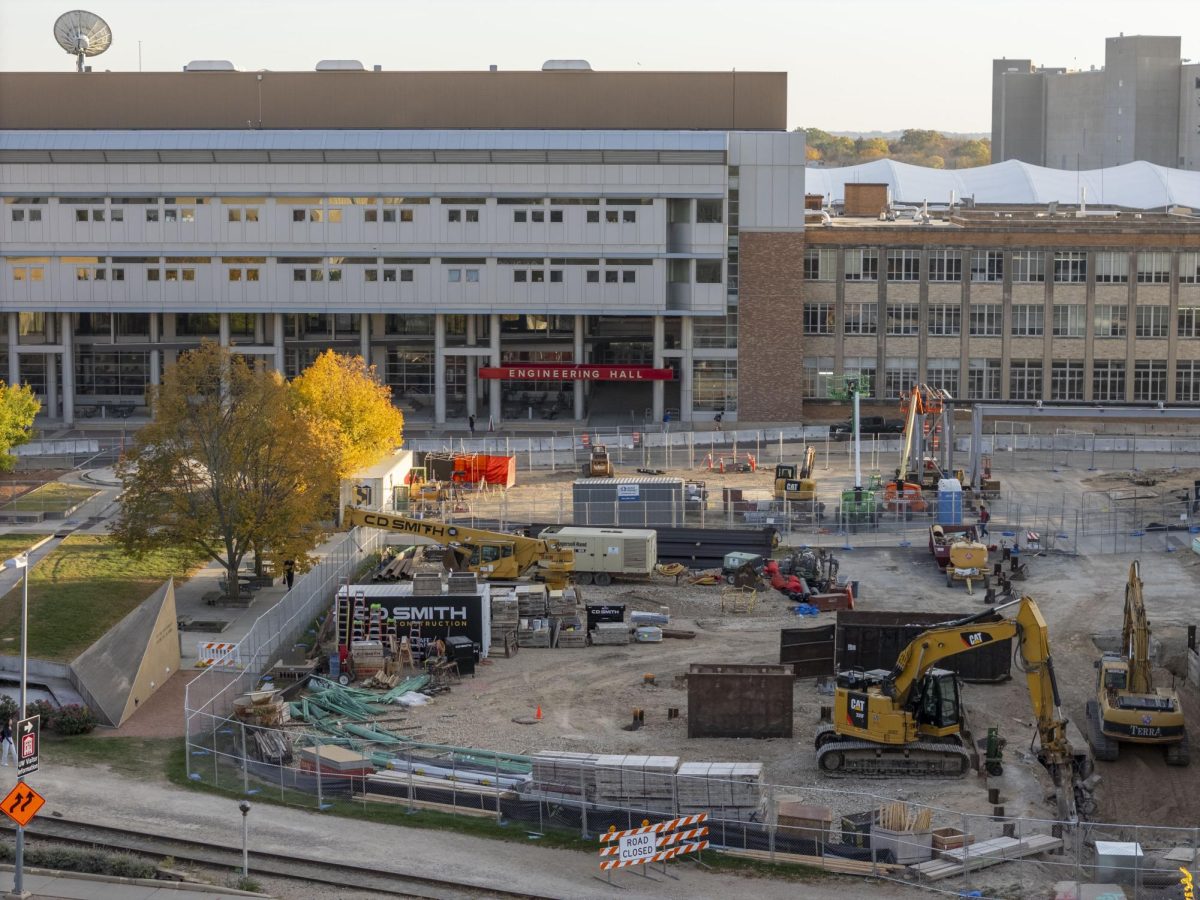Interim President of the University of Wisconsin System Tommy Thompson recently raised the possibility of consolidating branch campuses of the UW System with colleges in the Wisconsin Technical College System, sparking conversation about the issues prompting consolidation in the first place.
Thompson first spoke of consolidation at a Jan. 26 webinar hosted by the nonpartisan Wisconsin Policy Forum. Though it is uncertain what type of consolidation his plans would involve, Thompson cited student enrollment decline and the UW System’s strained financial situation as reasons to consider the idea of merging.
Consolidation first came about in 2017 when the UW Board of Regents passed a resolution merging 13 two-year colleges with four-year institutions, effective the following year.
UW Professor Emeritus of Political Science and Public Affairs John Witte said he advised then-Wisconsin Gov. Tony Earl in the 1980s to close the UW-Superior campus and consolidate the UW System down from there. Witte said the proposal was a poor decision politically, as it lost Earl the votes of many upper Wisconsin residents.
“Now, Thompson, of course, can recommend consolidation, because he’s not running for office again, at least I don’t think so,” Witte said. “But I think he knows the history of [consolidation efforts] … it’s a real hotbed politically, and it’s one that we have a history of that’s not positive in terms of happening, even though [consolidation] makes sense … I think really small campuses are very expensive.”
Thompson’s talk of consolidation begins as Wisconsin sees to its eighth year of freezing tuition. Recently, Gov. Tony Evers announced his budget proposal planning to fund tuition freeze impacts as well as pandemic losses with $190 million invested into the UW System over the next two years.
Witte, as well as UW Professor of Curriculum and Instruction and Educational Policy Studies Michael Apple and UW Assistant Professor of Adult and Higher Education in the Division of Continuing Studies Matthew Hora, said Evers’ budget plans are a step in the right direction. But, Apple added that in Wisconsin’s gerrymandered situation, there’s not a huge risk to the Republicans in the legislature to cut the budget for almost all higher education in half, at most, in terms of what will actually go into funding.
Cost savings are an aspect of the restructuring, Hora said.
“If the state decides to step up to the plate and properly fund its public education system, I think some of the rhetoric about cost effectiveness and cost savings … goes away,” Hora said. “It doesn’t mean that there are inefficiencies in the system that need to be worked out [by a consolidation], but a lot of that rhetoric happened after Governor Walker cut over $500 million from the budget.”
Witte added the tuition freeze itself is an issue, with UW-Madison’s tuition already being the second-lowest in the Big 10, and a tuition freeze specifically for students who have income needs would be more logical than freezing tuition across the board. Witte said it’s now difficult for Evers to get rid of the tuition freeze, as Republicans would skewer him on it.
Apple said though the tuition freeze is an attempt to get more working-class and minoritized students into schools, it’s also shedding faculty jobs, and without more funding going into higher education systems, the schools will fail.
“I strongly support Evers trying to put money back into the system that is in crisis right now, in part because Wisconsin was in the top 10 historically in funding for higher education,” Apple said. “We’re trying to do higher education on the cheap, with the argument being that the only way you justify this is if you can guarantee that the money will be spent in helping the economy.”
Apple added the goal of education goes beyond getting jobs, especially since much of job creation is in lower-wage, non-unionized, no pension types of positions.
Witte said it’s hard for big institutions like universities to adapt to financial issues. While corporations can lay workers off to cut expenses when demand for a product declines, big public institutions can’t immediately lay off faculty if fewer students enroll. Witte said universities are trying to do the next best thing — substituting in adjuncts, teachers who get paid by the course and don’t receive all the benefits of a tenured professor, to lower the cost of labor.
The UW System and Wisconsin Technical College System have reasons to resist consolidation, however.
“The Technical College could resist this conversation, at least the way it’s being unfolded now, because the mission of the tech college system is so unique and it’s so different from the two- and four-year UW campuses,” Hora said.
Hora said the UW System isn’t suited in many programs to give students the hands-on learning the vocational programs at technical colleges offer.
Witte said professors may want to resist because they don’t want to lose their autonomy, especially if consolidation leads to the merging of departments for cost efficiency. Witte also said consolidation could lead to a softening of the entire UW System with smaller campuses comparing wages and tenure criteria to UW-Madison.
UW System President announces goal for 75% classes to be in-person for fall semester
“[UW-Madison] should be resisting as well, because what happens is when you consolidate these sorts of things, the faculty [of other campuses] then start making demands that their salaries should be the equivalent, and that their benefits should be the equivalent of salary primarily of the Madison campus,” Witte said.
Witte added the requirements for tenure differ between UW System campuses and the entire UW System could soften when Madison faculty question their tenure requirements for the same salaries. Witte said either the tenure requirements will drop or there will be free riders in other campuses.
Hora said the consolidation must ask how restructuring could benefit students, with students being the largest constituency. Hora said without talking to everyone involved, it’s premature to speak about creating an agenda for consolidation. Hora cited that in 2018, administrators didn’t talk to enough people involved.
Badgers United aids UW amid $320 million in financial losses
Apple said the debate about consolidation currently only involved the regents, legislature and administration, and without more democracy involving those affected by consolidation on every level, issues prompting consolidation are only seen from above.
“I want us to think carefully about who is going to use this supposed reform and for what purposes,” Apple said. “Because I’ve tried to mention that this merger can have a real effect on all kinds of things.”
Apple noted the three priorities Thompson raised — to find efficiencies, save taxpayer dollars and expand education for more students. Apple said to be cautious about how the first two issues are about saving money, and only the third being about education.
As for the probability of consolidating the UW System and the Wisconsin Technical System, Apple said there doesn’t seem to be a lot of support, but it’s hard to predict what will happen. Apple added if it does happen, it will be because of the legislature’s false picture that some universities are not linked enough to job creation.
Witte said it’s unlikely the Republican-controlled legislature will let merger plans go through.
Hora said talk of consolidation invites a great opportunity for Wisconsin to re-evaluate its higher education system, but hopes the students and community will be put first, and not technocratic, managerial speak about cost reductions.
Apple said everyone affected must be involved to really address the serious issues.
“We have to ask what the issues are, and who should be involved in determining first the issues, and second the solutions,” Apple said. “We have to return to this idea that everybody should be involved in decisions about education.”














